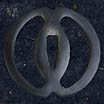
As most people are aware Miyamoto Musashi wrote a number of works the most famous being the scrolls of the Five Elements - Gorin no Sho. Some call this the tombstone book as the shape of each element constitutes the whole shape of a tombstone. This shape comes from Tibet as the script written on each part is Tibetan script. Gorin no Sho was written in Hiragani (simplified Japanese). At the beginning of the work Musashi states, "In writing this work I will not borrow from Confucian or Buddhist precepts". The fact of the matter is, if he had used Kanji to write the works it would have immediately relate to either Chinese or Buddhist precepts as each kanji has deep significant meanings both obvious and hidden. The very core of education in Japan stems from Buddhism.
Dokkodo is not "Another sword manual". After Gorin no Sho it was summary of Musashi's life, his will, a philosophy.
This online work is a part translation of Imai Masayuki Nobukatsu Soke's book, 'Understanding Dokkodo' He was the 10th Headmaster of the Hyoho Niten Ichiryu. The original book also contains the Ito and Nito Seiho techniques of the ryu. But as the 11th Soke, Iwami Toshio Gensho chooses to interpret the waza by doing the full sets rather than an annotated version done by the 10th Soke to improve fundamentals it is wise to do what is right to follow instruction of the present head of the ryu in practice. For this reason I have left the explanation of waza out. Reading both Dokkodo and Gorin no Sho will give some people a much further insight into the strength and purpose behind techniques. What has to be realized is that the actual will left by Musashi stating certain rules to go by in life is a simple summarization. One can take take each individual part and describe it in great depth using buddhist precepts. I met with a few unexpected problemsworking on translation. To do it requires a knowledge of Buddhist texts I first approached Japanese language scholars the find out the deeper meaning of the words. They in turn advised me to consult with colleagues of mine that I had worked with for many years with priests in the Jodo Shinshu Buddhist sect. |
This at times was was disastrous. Some would not be a party to helping with an English translation of what was in Musashi's time a brave radical opinion. Also Musashi has said that the biggest stumbling block in understanding Buddhism was it's priests who gave Buddhism a bad name! Understandably some refused to help. Musashi's basic philosophy also tells us not to think too much of religion. That I will leave you to decide for yourselves as you read the explanation! To translate the word Dokkodo as "Going my Way seemed to be most apt. I felt that the work was not long enough to publish as a book. Secondly if I added a few pictures and did publish, it would be against Musashi's principles. He would not have liked it!All are free to read it. Please feel free to make a link to it. But do NOT copy it, publish 'any' part of it anywhere, without my permission. It does have a copyright. I would strongly advise anyone wishing to research this further and Gorinno Sho to do search for Prof Kim Taylor-Canada. He has recently published work on Gorin no sho, Dokkodo and Sanjugokajo. Many people have attempted to translate work offering their own opinions. Such work really needs the opinion of someone who has actually practiced the ryu such as Taylor Sensei. Other HNIR foreign members and practitioners will surely identify with his observations.
There are in all 21 precepts. I have left out a detailed description of some, as to me they are self explanatory.
 |
|
 |
Next Page |